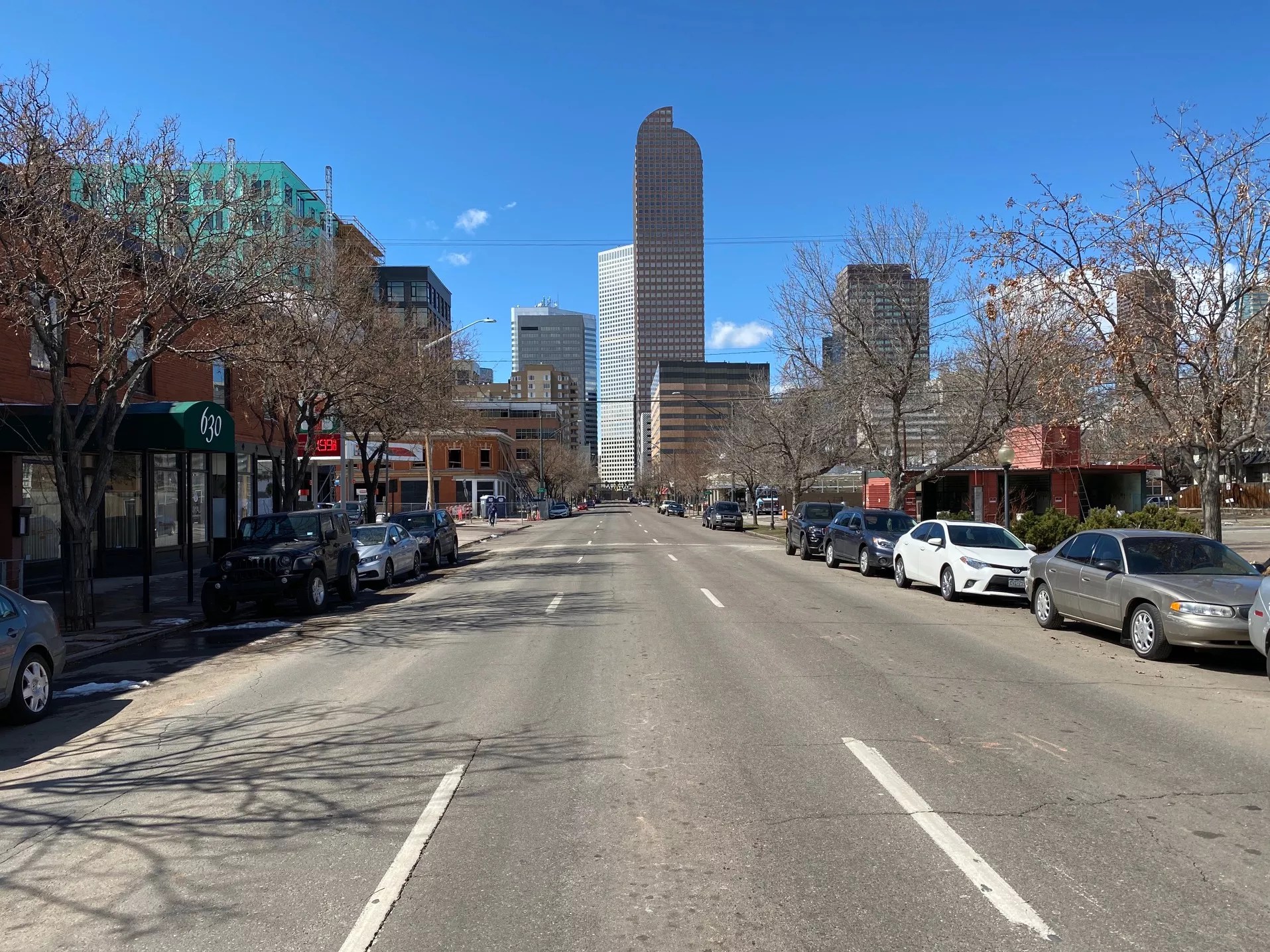
Chase Woodruff

Audio By Carbonatix
Today, it’s an accepted fact among climatologists that jet contrails can affect surface temperatures by filtering sunlight and trapping heat at night, just as high-altitude cirrus clouds do. But it wasn’t until 2002 that researchers were able to confirm that – a discovery enabled, strangely and tragically enough, by the 9/11 attacks.
With commercial air traffic over the United States shut down for three days in the aftermath of the attacks, scientists were later able to use meteorological data to isolate contrails’ impact on temperatures and prove their long-suspected hypothesis. And with transportation of all kinds grinding to a halt globally during the coronavirus pandemic, scientists are already planning similar research.
“The same opportunity exists now during this lockdown, but on a much, much wider scale,” says Mike Wofsey, principal researcher at Golden-based Scientific Illustration Services. “Traffic is being stopped all over the world.”
Since the early days of the outbreak in China, air-quality researchers have noted the dramatic decline in air pollution in affected cities as fewer people drive their cars and industrial facilities shut down non-essential production. While the effects can vary widely by region and are by no means permanent, social-distancing measures have caused a drop in local air pollution and greenhouse gas emissions all over the world.
In the Denver area, there are 60 percent fewer cars on the road than there were a month ago, Governor Jared Polis said at a press conference earlier this week. Air monitoring data from the Colorado Department of Public Health and Environment shows a dip in nitrogen oxide pollution along area highways, according to an analysis by Denverite, and CDPHE officials say that levels of other pollutants like carbon monoxide and particulate matter are lower than normal, too.
While temporarily cleaner air may not do much to offset the devastating health and economic impacts of the spread of COVID-19, it’s an unprecedented real-time global experiment for scientists who study the impact of air pollution on public health, the environment, wildlife, the earth’s climate and more.
“There’s a chance to use this bad thing for a good thing and understand how pollution in the air is killing us,” Wofsey says. “There’s this fantastic opportunity.”
Wofsey’s research focuses on fine particulate matter – commonly known as PM2.5 because it’s composed of tiny airborne particles that are less than 2.5 micrometers in diameter – and the shutdown could enable him and other researchers to gain a better understanding of how these pollutants interact with larger particles in the air. Closely studying PM2.5 levels before and after a sudden drop-off in primary pollution sources, he says, could help develop better air-quality models and lead to more effective controls, cutting down on one of the world’s deadliest forms of air pollution.
“You’re talking about millions of deaths per year,” says Wofsey, an industrial physicist who is raising money to help fund the research on Kickstarter, where he’s selling a gear box that his company developed. “The single leading cause of pneumonia is air pollution, and within air pollution, particulate matter is the single-biggest pollutant that leads to pneumonia.”
With concentrations of so many different pollutants changing rapidly across the world, there’s no shortage of other research opportunities. Air-monitoring data could, for example, better measure the amount of pollution that comes from car traffic as opposed to still-operating industrial sources like oil and gas facilities, or help inform our understanding of how ozone, a so-called secondary pollutant, forms in the air under different conditions. And even as the world feels the devastating impacts of the COVID-19 pandemic, public-health researchers are likely to be able to quantify the health benefits of reduced pollution during shutdowns, with some scientists projecting that the cleaner air could prevent tens of thousands of premature deaths in China alone.
“All these cars off the road – this isn’t just an opportunity for people who study air pollution,” Wofsey says. “It’s also an opportunity for people who study disease, and not just because of the spread of the virus. Because all of a sudden, in one huge and dramatic moment, the types of pollution in the air changed. So what’s going to happen? That’s a big and open question.”